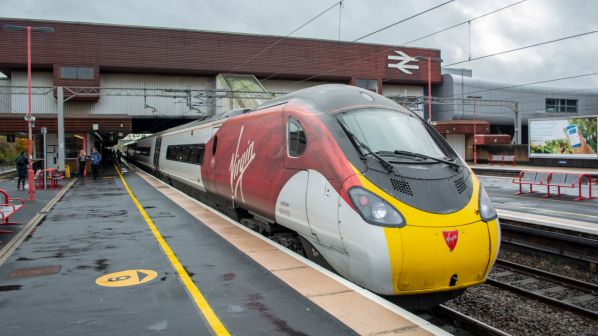Ridership has increased by nearly 10 million over the last 10 years and is now almost treble the 14 million journeys made when Virgin took over operation of the Inter-City West Coast (ICWC) from British Rail in 1997.
Virgin says the current growth trajectory will take ridership past the 50 million mark by the time the first phase of High Speed 2 from London to Birmingham opens in 2026.
A new report from the Campaign for Better Transport found that the investment in the West Coast Route Modernisation, a new fleet of Pendolino tilting trains, and the launch of the Virgin High Frequency (VHF) timetable in December 2008 resulted in growth almost double that elsewhere on the network. Between 2006 and 2018, Virgin Trains journeys increased by 105%, compared with growth of 59% across all train operators and 62% in the long-distance sector.
The report, entitled Transformation of the West Coast Mainline: How rail investment is benefitting people, the environment and the economy, concluded that these measures have also spurred regional and local economic growth, reduced road congestion, and lowered carbon emissions from transport. Benefits include:
- seven million fewer car journeys a year between London and Manchester
- 26,000 fewer daily car journeys on the M1 and M40 highways
- 7 million fewer air passengers between London and Manchester, resulting in 5000 fewer flights and 60,000 tonnes of CO2 savings between 2004 and 2017
- removing a million car journeys from the Lake District National Park, and
- growing rail’s share of the Glasgow - London market from 8% in 2009 to 20%.
“At a time when rail investment is being questioned because of poorly-implemented timetable changes, problems with franchises and over-running and over-budget projects, it is easy to lose sight of the huge benefits which can be achieved,” says Mr Darren Shirley, chief executive of the Campaign for Better Transport. “Rather than being happy side effects, outcomes such as lower carbon emissions, support for local economies and tackling road congestion should be regarded as a direct consequence of support for the railways.
“The improvements to the WCML were achieved thanks to a partnership of government and industry investment. With radical changes to the rail system under consideration as part of the Rail Review, this report shows how thinking, collaboration and cooperation can have far reaching and long-term benefits."

